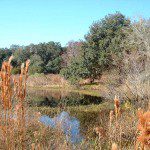Landscape and memory combined to tell us certain places are special, sanctified by their extraordinary natural merits and by social consensus. We call those places parks, and we take them for granted. Some are large, spectacular, and wild –such as Yellowstone and Kruger. Some are intimately local – such as Buttes – Chaumont, set within a busy neighborhood of Paris. Many are threatened by pressures from the societies that surround them, even as our hunger for the respite they provide grows ever greater.

We dedicate the bulk of this issue to Earth’s most cherished natural places. David Quammen surveys the debate on the theme roughly formulated as “parks versus people.” John G. Mitchell traces the history of the parks idea in one country, the United States, and assesses the perils faced by America’s National Park System. Jennifer Ackerman considers the role of parks in urban environments.
In his 1995 book Landscape and Memory, social historian Simon Schama wrote: “All our landscapes, from the city park to the mountain hike, are imprinted with our tenacious, inescapable obsessions.” Human obsessions aren’t always pretty. But these chosen landscapes – parks, of every spot – may show us at our best.
An Endangered Idea…
A national park is, in more cases than not, a wildly ambivalent act of collective purpose: dreamy yet provident, selfish yet sacrificial, local yet global in significance. Unlike a national anthem or a national flag, a national park exists in the concrete dimensions of geography, biology, and economics – and in the dimension of symbolism as well. It has living denizens and physical boundaries. It has benefits and costs. It has friends, and sometimes it has enemies. It has an aura of sacred permanence as a place that society has chosen to set aside and protect forevermore.
Threatened Sanctuaries…
At a period in our history notable for perishable institutions, it’s reassuring to know that our national parks, after all these years, remain the best idea America ever had. A British diplomat, James Bryce, rendered that judgment in 1912 when the United States could boast but a handful of parks and a new federal agency designed to look after them wouldn’t be established for another four years. How time flies. A decade from now, we’ll be breaking out the bubbly to celebrate the National Park Service. That’s if, the way things have been going lately, there’ll be enough high standards left untrampled to justify the toast.
By: Tesha Daniels / teshadaniels@gmail.com


